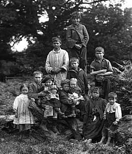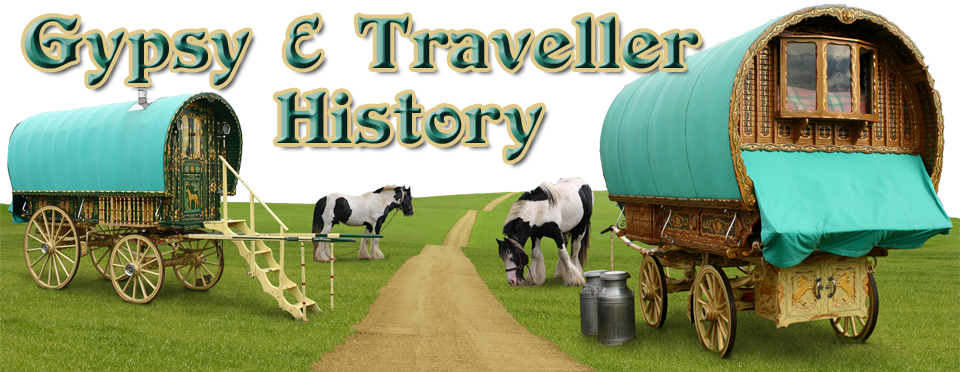Family

Togetherness of the family is extremely important. If a relative is having hard times then the rest of the family tries to help and provides support. These situations may include for example financial difficulties, divorce, sickness and death. In a balanced Romany family the man and the woman do not compete against one another. The man is the head of the family and the woman is the heart of it. Both are important for the wellbeing of the family. A man is appreciated according to how well he can support his family, and a woman according to how well she manages the home and the children.
In the Romani community the women create the atmosphere of the home and are fundamentally strong people. Although Romani women still have many responsibilities they do not usually feel themselves oppressed. The question of equality between men and women is not important. The men are in the background when issues connected with the role and status of women are dealt with and vice versa.
The decreasing role of the men as influential persons in the family is visible in the modern development of the society and families. Traveller women have always had the right and the duty to work outside the home to provide for the family. Therefore it has always been easier for the women to re-educate themselves and to find their place in the labour market. In the near future special measures should be taken to prevent Traveller men from marginalisation.
The elders and the children have always been special groups within the Romani culture in general. They play an important role in both women’s and men’s roles. Both genders are responsible for the wellbeing of the elders and the children.
It is typical for all the members of the Romani community to take part in the upbringing of the children. Although it is seen as the women’s duty to pass on the traditions, the fathers play an important role in their children’s wellbeing in relation to other Travellers.
How much a child learns in school or how skilled and able he/she is, is not primarily important to Traveller parents. It is important for the child to have a safe and happy childhood. Traveller children have a lot of knowledge of people and human nature from quite an early age. They receive teaching and wisdom from the adults and a child learns to live as a member of the community from birth.
Traveller children have to face other people’s negative attitudes early on in their life and because of that the parents strive to give the sons and daughters strong roots so they can deal with the difficulties they may face. It is reported that Travellers have not placed their children in day-care until quite recently. (Times Educational Supplement, 2004)
Education
It is compulsory for a child to attend school between 5 – 16 years of age and it is the Local Education Authority’s duty to provide sufficient school in –
- Primary education
- Secondary education
“ They must afford all pupils the opportunity for education offering such variety of instruction and training as may be desirable in view of their different ages, abilities and aptitudes and of the different periods for which they expect to be at school including practical instruction and training appropriate to their respective needs.”
Travellers find it difficult to maintain contact with the education system because of being constantly evicted, but additionally they do not always easily allow their child into school. There are reasons for this.
Many Travellers believe that they can offer their children an alternative education in their own community suitable to the needs of that child. Some elements of the education curriculum are felt to be inappropriate for Traveller children e.g. sex education and permission attitudes in particular.
Many children are removed from school at 12/13 years, having learnt all that is deemed necessary by their parent.
There is a difference in school attendance between children living on unauthorised and official sites. The constant movement from unofficial sites to new locations, not always within the same city, affects school attendance. Because children do not always have time to settle in school, they are often subjected to more bullying, victimisation and prejudice, which can also mean the child, is reluctant to return there.
It is reported that schools sometimes refuse to take Travellers into their classes, despite the 1980 Education Act stating that:
“Education Authorities have a duty to enable parents to express a preference as to the school they wish their child to attend. This applies to all children residing in its area, whether permanent or temporary and regardless of the legal status of a camp site where a Traveller child may live.”
Consequently, a Traveller child may be expected to travel a distance to the nearest school that accepts them.
Gypsy and Traveller children should have access to the same curriculum as other children, but they may have experienced interrupted learning and this should be considered and appreciated when planning work for individual children. Where children are not accessing mainstream school and time is limited it would seem appropriate to concentrate on areas of literacy, numeracy and perhaps health. The other curricular areas such as ICT, art and social studies for example can link the core subjects together and assist in making learning fun and enjoyable. Relevance, age and stage and the transfer of records from other areas should also be taken into consideration.
Appropriate cultural resources can also be used to encourage children to participate. There are a number of books, teaching packs and websites (such as NATT – National Association for Teachers of Travellers and other professionals) which are easily available and available and which reflect the culture of the various groups of the Travelling community – see the appendix at the back for further details.
Other issues to consider regarding engaging Gypsies and Travellers in education are
- Parental Literacy – letters, homework etc.
- Timing of making contact – travelling season, length of stay etc.
- Access to school or place of learning – transport, uniforms and school meals.
- Log in to post comments

